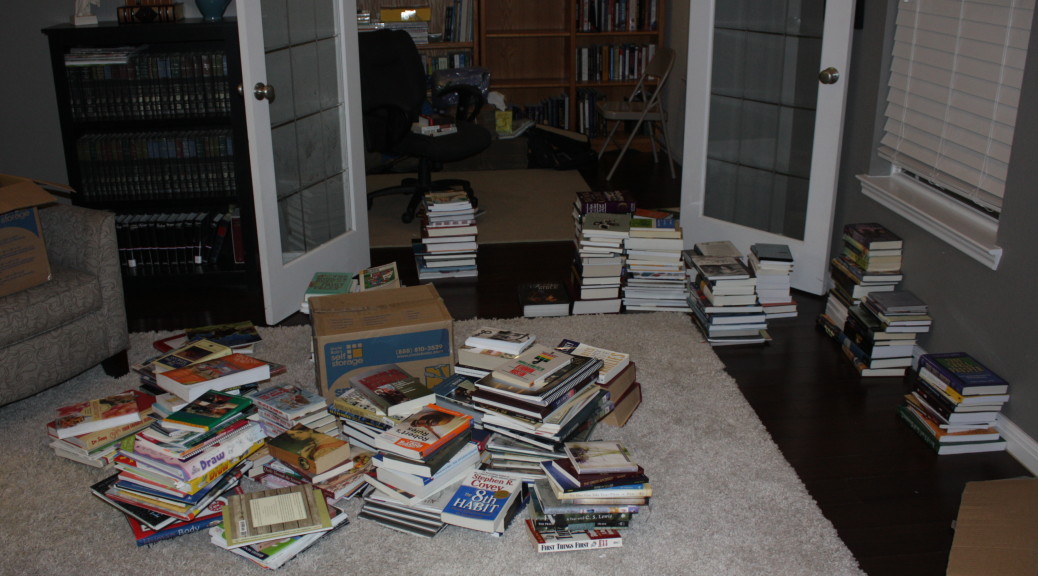It seems there is someone willing to create an enumerated list or process for tackling any problem we face in life. One such process, applied to addiction and frequently touted, contains twelve steps. What the full list of those twelve directives are, I don’t know and am content to never find out. However, I am sure of the first step: admit you have a problem. I believe our household completed that step today.
For years, Liz has struggled with something short of an addiction. I’ve known about it for a long time, but let it be. On the other hand, though, I don’t think Liz really understood until just recently. It’s something of an unusual “almost-addiction,” in that it hasn’t gotten in the way of daily life and that it isn’t shared with many people. You see, Liz has been something of an over-exuberant book buyer. To complicate admitting the truth, we both love books. Books represent knowledge and learning. They are tangible evidence of information and expansive education. Society doesn’t necessarily look down on you if you happen to be caught with a book in your hand, and there aren’t obvious health or mental wellness complications that arise from having an extensive library. In fact, were we free from the prospect of another move and exceeding our weight allowance, I’d be content to let the entire collection occupy space on our shelves until such time as the contents of those shelves had all been digested.
Courtesy of our slow progression to larger and larger residences as we’ve moved every few years, we’ve never really had to face the facts and admit that our library was excessively large. However, there have been instances that should have served as a warning. When we left Alaska, the packers (stunned by what they saw in our closet of books) loaded almost our entire collection into a single shipping crate. When they went to unload that crate at our new home in Texas, the fork-lift (the kind that attaches to the end of a flat-bed truck) almost couldn’t lift it up off the truck. We should have realized then that we had a problem.
As a matter of record, though, we did go through and thin down the collection of home-school curricula Liz had bought and subsequently decided we weren’t going to use. However, it didn’t take long to restock those sections of empty shelving with new and improved books on every topic conceivable. As we now face the prospect of another move into what is likely to be a much smaller house, Liz has started to feel cramped and begun to reconsider her book-buying and keeping habits. The book collection, she decided, needed to be extensively pruned.
Tonight, she cornered me and told me we were going to go through all the books on the shelves and sort out the ones we could get rid of. Then, once that task was completed, we had to sort through them to decide which we would try to sell, which we would donate, and which would end up in the burn barrel. That was several hours ago, and we have successfully identified almost half of the bound stacks of printed-on paper in our home as excess and flagged them for removal. The trick now is to ensure that those worthy of re-sale actually get listed and sold. We often have the best of intentions, but follow-through on things like listing things on ebay hasn’t been historically good. Looking at the stack, there is several hundred dollars on the line, even if we only sell them for a dollar or two each, which may motivate a more diligent effort.
Liz’s intent is to shift to more e-books and otherwise relying on the local library. If we can make that work, it’ll save both the weight allowance for the next move and a substantial portion of our budget. Unfortunately, I still like books, and I doubt Liz has truly given up on them either. I guess we’ll see how long this sticks. Maybe a Kindle or two piled high with classics will scratch the itch.
